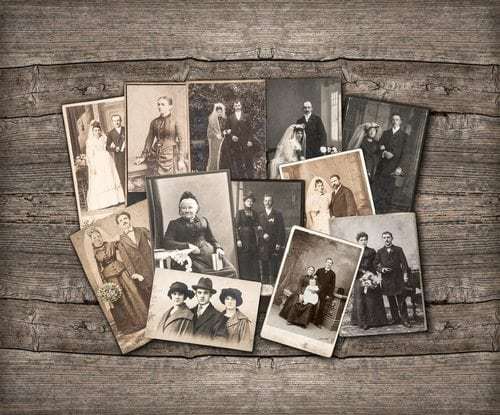Have you ever wanted to know more about your ancestors? Where did they come from? What are their stories? How did their lives influence your own? Learning about your forefathers can be interesting, of course, but it can also help you better understand your parents, your siblings, your children, and yourself. If you aren’t sure how to start this potentially eye-opening journey, use the tips below to learn how to research your family history.
How to Research Your Family History
Talk to Your Family
First, talk to your relatives and let them know about your quest. Ask them what they know about your family tree and your ancestors’ stories. You may be surprised how much they know, especially if they have already conducted some genealogical research on their own. If anyone in your family is interested in genealogy, ask if you can share your research with one another so that you don’t have to start from scratch. You could also check your family’s photo albums, scrapbooks, and any diaries, journals, letters, or boxes of mementos.
Research Online
Several websites provide useful information for those wishing to explore their genealogy, and many of them do so for free. Ancestry.com, for example, is a great source for those new to ancestral research. Although some of its features require payment, new members receive a free trial and a lot of the website’s information is available to everyone free of charge. Other popular options include FamilySearch.org, FindMyPast.com, and MyHeritage.com.
Search for Official Records
Regardless of which search engine you use when learning how to research your family history, census and military records provide a wealth of information. Census records are made publicly available 72 years after their compilation, and you can view these records in a variety of ways: genealogy websites (like Ancestry.com and FamilySearch.org), the National Archives Building or associated regional facilities, public libraries, historical societies, State Archives, etc. You can often find more recent information by looking up military records and birth, death, and marriage certificates.
Research Your Name
As you research your family, note that your surname may have changed over the years due to a variety of factors. Sometimes a name naturally evolves over the years; other times, an ancestor may have purposely adjusted his or her name for one reason or another. For example, letters may change, an apostrophe may disappear, a gap may be closed, a name may be abbreviated, or it could be translated to English. For example:
- Lansink to Lansing
- O’Dell to Odell
- Du Pont to Dupont
- Rubenstein to Ruben
- LeBlanc to White
In some cases, names were misspelled on passenger lists, and family members then kept the new spelling. Other families changed their names to make them easier to pronounce in English.
Visit the Library
Finally, don’t forget to visit your local library. A librarian may be able to help you learn how to research your family history, typically through online resources. However, if your family has lived in the area a while, the librarian may also be able to find first-hand documents for you to peruse. For example, they may help you seek out cemetery records, marriage records, newspaper collections, and historic maps.
_____
Every family has its fair share of secrets. With a bit of digging, you can learn more about the interesting men and women who paved the way for your own birth.
Are you looking for an assisted living community in Tennessee? If so, be sure to check out Hearthside Senior Living Place, located in Bartlett, Tennessee. We would be happy to schedule a tour for you so that you can explore the community, meet some of the residents, and ask any questions you might have. For more information, please call 901-854-6590. We look forward to meeting you!

